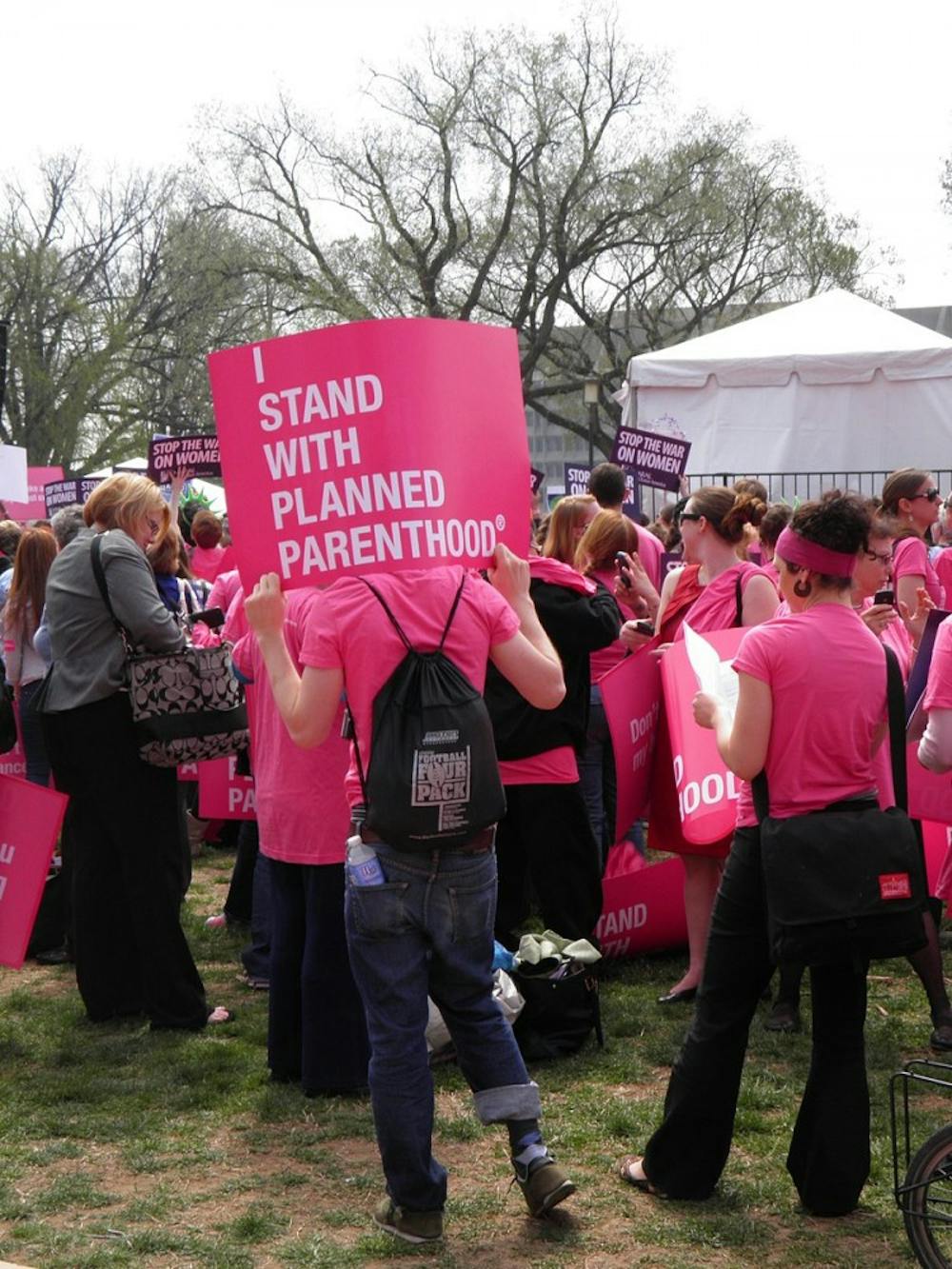Earlier this summer, Joe Biden, garnering criticism from nearly every other Democratic primary candidate, made a splash with his declaration of support for the Hyde Amendment — a ban on federal funds for abortion care. In the middle of a fierce battle over abortion rights — with nine states currently attempting to ban access to safe and legal abortion care — Biden’s “middle ground” approach couldn’t have been more tone deaf and out of touch. The utter lack of respect for the people suffering because of Hyde, and the complete insincerity he showed when he flipped positions less than 36 hours later, highlight his inability to identify with low-income women and people of color and the systemic inequalities they face on a daily basis in nearly every aspect of our society.
The Hyde Amendment was first enacted in 1976 — three years after Roe v. Wade was decided — and has been renewed by Congress every year since. Almost immediately, the federal government ended abortion coverage in its employee and military healthcare plans, began refusing government-funded abortion care to federal prisoners and Peace Corps volunteers and shut off funding to international family planning programs which perform or educate about abortions. Surviving numerous legal challenges from advocacy groups, civil rights watchdogs and healthcare providers over the years, Hyde has permitted decades of inequity and has discriminated against working class people who do not have or cannot afford access to reproductive healthcare on their own.
Hyde bans Medicaid funding from financing abortion care. 15.6 million women are enrolled in Medicaid, and about one-in-five women of reproductive age (15-44) are Medicaid patients. Hyde denies access to safe, legal abortion care to the millions of women who receive Medicaid benefits — many of whom have low incomes. As a result, many Medicaid recipients seeking abortions may be forced to forgo basic necessities like heat and electricity while they save money to finance the procedure. Or worse, they may turn to unsafe back alley or self-induced abortions. At its very core, Hyde perpetuates the inequality of our healthcare system and discriminates against poor people seeking quality reproductive healthcare services. Each time Congress renews Hyde, another brick is added to the socioeconomic barrier to healthcare.
Communities already disadvantaged by the structural inequalities which link race, gender and socioeconomics in the United States are disproportionately affected. Thirty percent of black women and 24 percent of Latina women are covered by Medicaid — compared to just 14 percent of white women. Because of Hyde, these communities are denied access to a full range of reproductive healthcare. It is impossible to acknowledge the harm Hyde has done to reproductive justice without also acknowledging the racial disparities in our federal healthcare system.
Exceptions to Hyde are narrow and rare. Federal funds are permitted for abortions when the life of the mother is in danger, or when the pregnancy is a result of rape or incest. These exceptions do little to ensure reproductive justice or to fix the inequalities in healthcare caused by decades of Hyde. Less than 2 percent of abortions in the United States result from rape and incest — and to implicity argue a woman should have to be a survivor of sexual assault in order to have equal access to a safe, legal abortion is absolutely deplorable.
Since Hyde first went into effect, four states — Hawaii, Maryland, New York and Washington — have voluntarily included abortion care in their Medicaid programs with funding from the state budget. Twelve states — Alaska, Arizona, California, Connecticut, Illinois, Massachusetts, Montana, New Jersey, New Mexico, Oregon, Vermont and West Virginia — have begun funding abortion care due to court orders mandating equal access to healthcare for Medicaid patients. Virginia — which restricts state funds in accordance with Hyde — has made an exception for fetal abnormalities.
We are dangerously close to a further erosion of reproductive healthcare access. Just over a year ago, the Republican majority in the House of Representatives voted to permanently establish the Hyde Amendment. The measure didn’t get a vote in the Senate, but as long as the Hyde Amendment remains on the books, millions of people in this country will not have equal access to reproductive healthcare.
Abortion is healthcare. As long as the federal government provides healthcare benefits to its citizens, it must provide patients with a full range of options. An individual’s access to reproductive healthcare options — such as safe, legal abortion care — should not hinge on their ability to pay. It is time to eliminate systemic socioeconomic barriers to healthcare. It is time for reproductive justice in this country. It is time to repeal the Hyde Amendment.
Noah Strike is a rising second-year College student and serves as the president of Planned Parenthood Generation Action at UVA.







